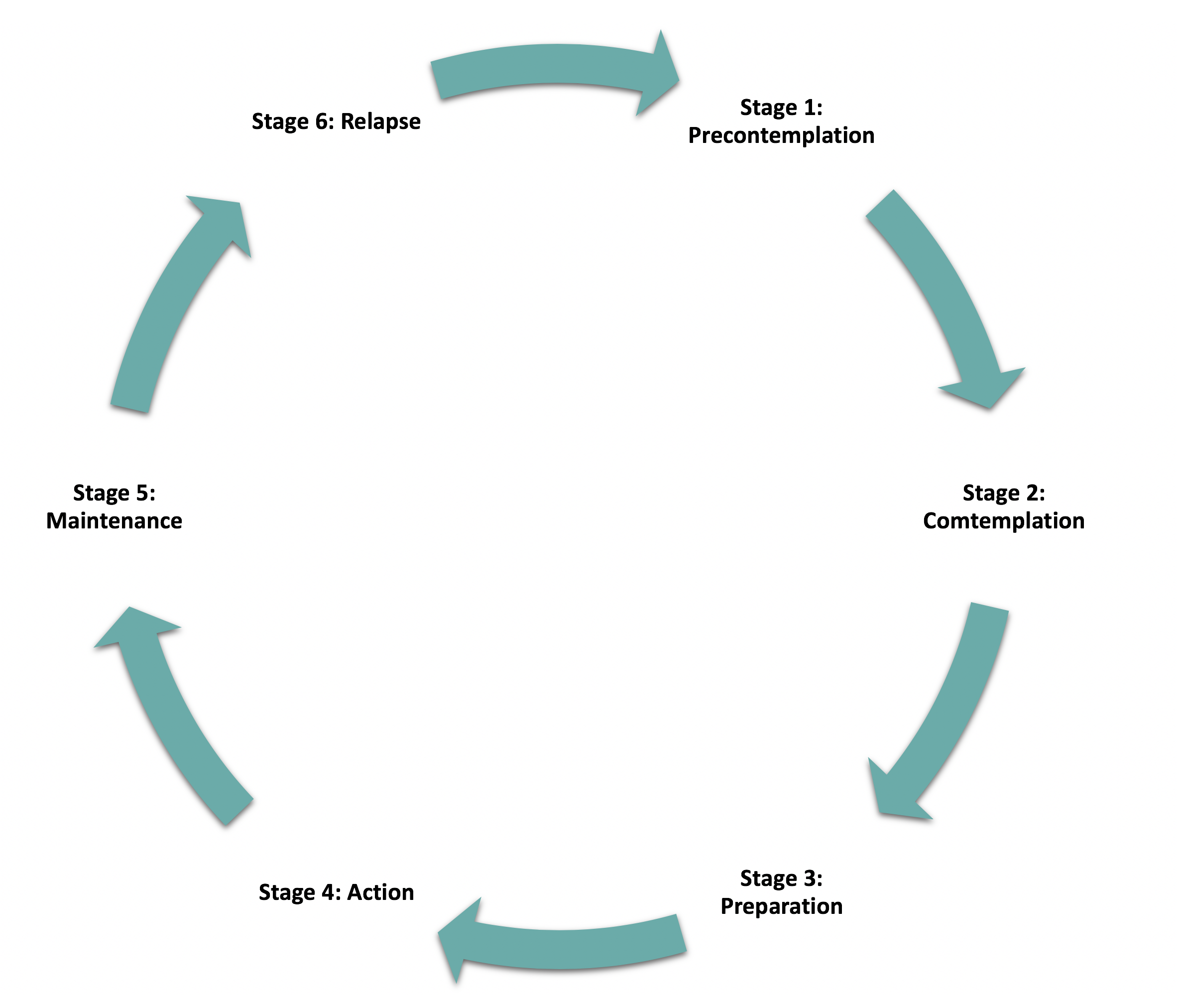Being motivated to make changes in your life is an important part of psychological therapy. Learning about the stages people go through when they want to make a change can help you to figure out where you are currently. It also provides you with un understanding of the next stage and take steps to achieve lasting change.
Prochaska and DiClemente developed a model which overviews the Stages of Change. This model was developed for work with people who experience drug and alcohol addictions, however it can be applied in a range of situations to help people make changes in their life. This model along with all types of therapies emphasises the importance of having a good therapeutic relationship. This means developing trust with your psychologist and feeling comfortable opening up to them about sensitive topics. Your psychologist will work with you to help you make changes and will not push you into making changes you are not ready for.
a model which overviews the Stages of Change. This model was developed for work with people who experience drug and alcohol addictions, however it can be applied in a range of situations to help people make changes in their life. This model along with all types of therapies emphasises the importance of having a good therapeutic relationship. This means developing trust with your psychologist and feeling comfortable opening up to them about sensitive topics. Your psychologist will work with you to help you make changes and will not push you into making changes you are not ready for.
The Stages of Change Model
The Stages of Change Model has six stages. Understanding these stages can help both you and the therapist know what tasks are needed to help you move to the next stage.
Pre-contemplation – Not even thinking about it
Contemplation – Thinking about it
Preparation – Getting Ready
Action – Doing it
Relapse – Learning opportunity
In the Pre-contemplation stage you are not ready to make changes. Once you enter the contemplation stage you are not really ready for change and haven’t started to think about making changes. The preparation stage involves getting ready for change and then the maintenance stage involves committing to the strategies changes you have made. Relapse is a part of the process and is acknowledged as a common and normal occurrence. Relapse is a learning process by which you look at your triggers for relapse and how these can be better prevented or managed.
If you are in the precontemplation stage your Psychologist will provide you with strategies to minimise the harms of your situation and if you would like it, they can provide you with information regarding your difficulties. If you are starting to contemplate making changes your Psychologist will help you weigh up the pros and cons of change and think through what you would like your future to be like. When you are preparing to make changes, your Psychologist will help you set goals and make plans they will also support you during the change process. Once you have made changes your Psychologist will then help you work towards maintaining these and developing strategies to minimise relapses or the harms associated with a relapse. When relapses occur, you can make another appointment with your Psychologist to look at what led to the relapse and develop strategies to prevent similar occurrences in the future. With relapse can comes feelings of frustration and disappointment and even guilt or shame. Your Psychologist can support you to manage these feelings and expectations more effectively.

At some point in your journey you will reach a stage of long-term maintenance of your changes. At this time, you exit the cycle and many people can maintain changes for the rest of their lives.
Now you may think most of the clients who come to see a Psychologist are in the preparation or action stage of change. However, this is not necessarily the case and we have many clients who say, “I don’t think I have a problem but my wife, husband, girlfriend, boyfriend, mother, father, boss, friend etc said I needed to come see a Psychologist.”
If you are being told by others that you need to change, you are thinking about making changes yourself or you are ready to make changes, one of the PsychHelp Psychologists can help you.


